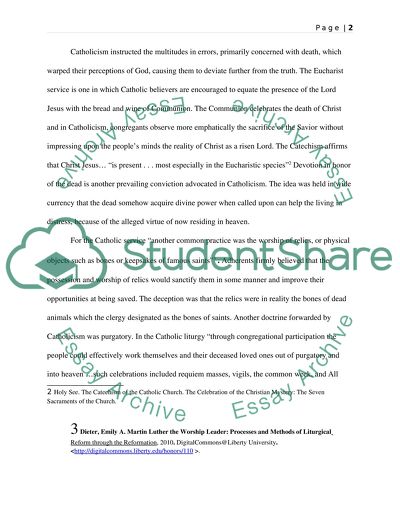Cite this document
(“Martin Luther and his Theology on Worship in the Church during the Research Paper”, n.d.)
Retrieved from https://studentshare.org/religion-and-theology/1439373-martin-luther-and-his-theology-on-worship-in-the
Retrieved from https://studentshare.org/religion-and-theology/1439373-martin-luther-and-his-theology-on-worship-in-the
(Martin Luther and His Theology on Worship in the Church During the Research Paper)
https://studentshare.org/religion-and-theology/1439373-martin-luther-and-his-theology-on-worship-in-the.
https://studentshare.org/religion-and-theology/1439373-martin-luther-and-his-theology-on-worship-in-the.
“Martin Luther and His Theology on Worship in the Church During the Research Paper”, n.d. https://studentshare.org/religion-and-theology/1439373-martin-luther-and-his-theology-on-worship-in-the.


